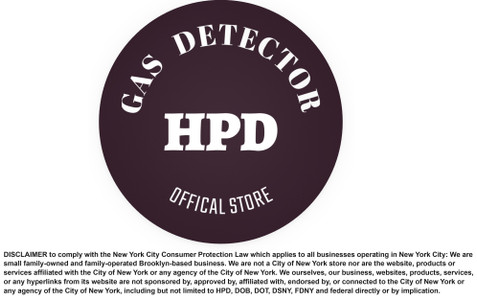Natural Gas Detection Devices in NYC: Understanding Local Law 157
Introduction
In recent years, New York City has taken significant steps to enhance safety measures for residents and property owners. One critical area of focus has been the detection of natural gas leaks, which pose severe risks of explosions and fires. Local Law 157, enacted by the City Council, mandates the installation of natural gas detection devices in various types of buildings across the city. This article provides an overview of this new law, including where gas detectors must be installed and the types of devices permitted under the regulation.
Overview of Local Law 157
Local Law 157, part of a broader legislative effort to improve safety and preparedness in New York City, requires the installation of natural gas detectors in specific residential and commercial properties. This law aims to ensure that gas leaks are detected promptly, reducing the likelihood of dangerous incidents and providing occupants with early warning to evacuate if necessary.
Key Provisions of Local Law 157:
-
Scope and Applicability:
- The law applies to various types of buildings, including multi-family residential buildings, commercial buildings, and mixed-use properties.
-
Installation Requirements:
- Residential Buildings: Natural gas detectors must be installed in all dwelling units within multi-family residential buildings. Each unit should have at least one detector in the area where natural gas appliances are located (e.g., kitchens, laundry rooms).
- Commercial Buildings: For commercial properties, detectors should be placed in areas where natural gas is used, such as kitchens in restaurants or other food establishments.
- Mixed-Use Buildings: In buildings with both residential and commercial spaces, detectors must be installed in both the residential units and the commercial areas where natural gas is used.
-
Type of Gas Detectors:
- Only detectors that meet the standards set by recognized testing laboratories (e.g., UL-certified devices) are permitted.
- Detectors must be capable of detecting natural gas (methane) and be equipped with an audible alarm to alert occupants of a gas leak.
-
Maintenance and Replacement:
- Building owners are responsible for ensuring that detectors are properly maintained and replaced according to the manufacturer’s guidelines.
- Detectors should be tested regularly to ensure they are functioning correctly, and batteries should be replaced as needed.
Compliance and Enforcement
Compliance with Local Law 157 is enforced by the New York City Department of Buildings (DOB). Property owners who fail to install the required detectors or maintain them properly may face penalties, including fines. Additionally, during routine inspections or upon complaints, DOB inspectors will check for compliance with the law.
Benefits of Natural Gas Detectors
Installing natural gas detectors offers several significant benefits:
- Early Detection: Detectors provide early warning of gas leaks, allowing occupants to evacuate and take necessary actions to prevent potential explosions or fires.
- Increased Safety: By ensuring that gas leaks are detected promptly, the risk of severe accidents and injuries is significantly reduced.
- Peace of Mind: Occupants can feel more secure knowing that there is an additional layer of protection against gas-related hazards.
Conclusion
Local Law 157 represents a proactive approach by New York City to enhance safety and protect residents and businesses from the dangers of natural gas leaks. By mandating the installation of certified natural gas detectors in key areas of buildings, the city aims to prevent potentially catastrophic incidents. Property owners and occupants should familiarize themselves with the requirements of this law and ensure compliance to safeguard their premises and ensure the well-being of all residents and visitors.
For more detailed information and guidance on compliance, property owners can visit the New York City Department of Buildings website or consult with a professional specializing in building safety and code compliance.
